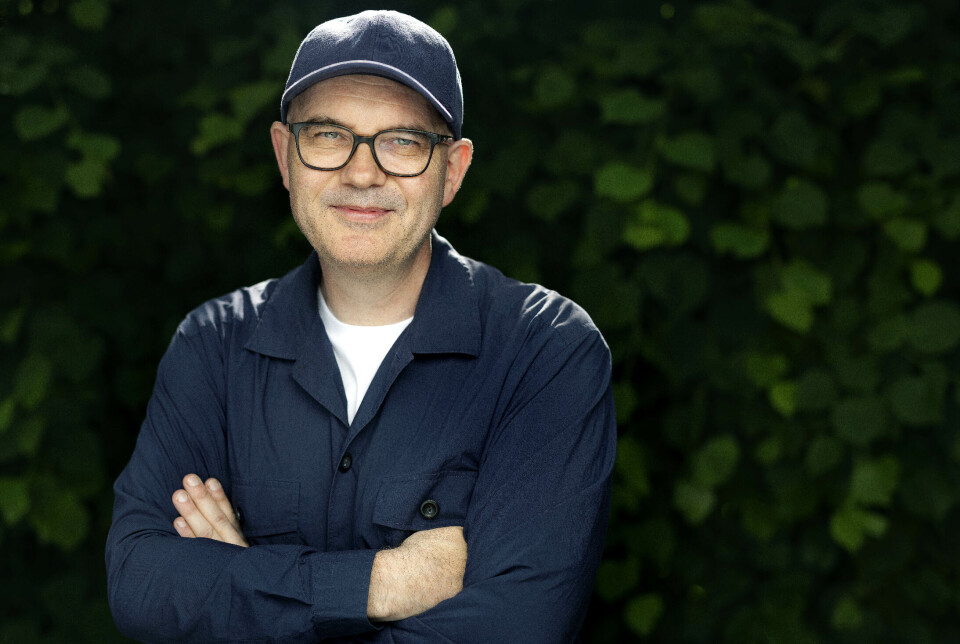
Philosopher: You don't become wise without help from others
“No one is truly self-sufficient,” says Lars Svendsen.
It is always helpful to turn to wise people when facing life’s challenges, big or small. They usually offer insightful answers, and sometimes ones that are entirely unexpected. At the very least, they make it seem that way.
We read books and engage in deep discussions with others, hoping to be perceived as wise ourselves.
But what is the secret? Who is actually considered wise, and why?
“Completely closed off”
Lars Svendsen is a professor of philosophy at the University of Bergen, has recently gained attention with his new book Dumhet, idioti og dumme idioter (Stupidity, idiocy, and stupid idiots).
In this book, he offers a more grounded perspective. While the aim does not necessarily have to be being seen as wise by others, it might at least be to become a little less foolish. The worst, in his view, are the stupid idiots, who represent the opposite of what he considers wisdom.
“The stupid idiot is completely closed off. They’re not open to counterarguments and aren’t receptive to others,” Svendsen tells sciencenorway.no.
So, what is the opposite of that? “Being able to engage with the world in a reflective way” is how Svendsen defines wisdom off the cuff.
From a philosophical perspective, he believes that high intelligence does not automatically equate to wisdom.
He has noticed some recurring traits in people who boast about their own high IQ.
Wise people don’t focus on IQ
“First of all, they don't come across as particularly smart. Secondly, they have rarely achieved anything of significance,” says Svendsen.
Of course, there are highly intelligent people who have accomplished great things:
“But they tend to focus on other, more important things than their own IQ,” he says.
And that likely adds to their wisdom.
Being wise involves more than just the ability to add two and two together.
Evaluated fictional characters and themselves
In a new study, researchers asked 2,700 people across 12 countries what they considered wise.
The study was published in the scientific journal Nature Communications, with key findings highlighted in a press release.
Participants were given scenarios in which fictional characters had to make tough life decisions. They were provided with names and some background information about the characters, which included roles like researchers, politicians, teachers – and even themselves. Participants were then asked to assess how well the characters handled these decisions and which qualities they relied on to make their decisions.
On a scale from one to five, participants rated how likely they thought the characters were to use 19 different traits. These traits had already been identified by researchers as indicators of wisdom.
For example, logical reasoning and the ability to consider other people’s perspectives.
Logical thinking and compassion
Researchers found that participants across cultures evaluated certain traits similarly.
These included the ability to think logically, control their emotions, show empathy for others, and understand social contexts.
Many viewed these qualities as signs of wisdom.
Does adversity make you wiser or more bitter?
A 2021 study published in the International Journal of Behavioral Sciences offers some insights.
In this study, two Indian researchers explored the characteristics of individuals they defined as wise.
They found that wise people learn from the challenges life throws at them. In contrast, less wise individuals tend to grow bitter and overly self-critical.
Openness is a common trait of wisdom
In 2022, researchers from Canada and the USA published a review of 30 years of wisdom research.
This study was published in the scientific journal Perspectives on Psychological Science.
The researchers investigated how wisdom is linked to personality traits and self-esteem.
Their findings show that wisdom is often associated with openness. People who are content with themselves and their lives are more likely to be perceived as wise.
Overconfidence
“Being brilliant at formal logic doesn’t prevent someone from being utterly foolish in other areas,” says Svendsen.
You could be a leading cancer researcher and still spout nonsense about computer science or environmental science.
“Mastery in one field can lead to an inflated belief that you’re competent in others as well,” the philosopher explains.
This is where the social side of wisdom comes into play. We need corrections from others.
Wise people are socially aware
“It’s hard to imagine calling someone with no social awareness wise,” says Svendsen.
He believes that reflection is a social activity. You are unlikely to become wise without being challenged by others from time to time. He also believes that receptiveness is a key trait.
“No one is self-sufficient,” says Svendsen.
We need other people’s perspectives to test our own against, which is why wisdom is developed through interaction with others. This aligns with the findings from the international study.
Evil, but wise?
Svendsen believes wisdom is reflected in how one lives their life and how they relate to others.
Being wise is primarily tied to having good intentions, says Svendsen.
“Someone can be clever in a technical or instrumental sense,” he says.
He explains it like this: You can be skilled at achieving a goal, while disregarding the fact that the goal is morally wrong. You don't need to have moral insight to be smart.
“But I wouldn’t call such a person wise. Perhaps sharp or intelligent, but not wise,” he says.
Is there a downside to wisdom?
It's great to be able to share your worries with a wise friend who knows what to do, but does this wisdom become a burden for that friend? Svendsen points to cultural history, particularly Håvamål, where wisdom is best when kept in balance.
Moderately wise
A man should be,
Not overly wise.
For seldom is the heart carefree in a wise man,
Even if he knows all in the world.
“The idea is that the wise person understands just how grim things really are, and that this insight comes with a certain heaviness. Personally, I’m not convinced this is true. I think it’s often just self-flattery from people feeling a bit down,” says Svendsen.
References:
Dong et al. Thirty Years of Psychological Wisdom Research: What We Know About the Correlates of an Ancient Concept. Perspectives on Psychological Science, vol. 18, 2022. DOI: 10.1177/17456916221114096
Kanwar, M. & Sehgal, M. Virtuous Qualities and Personality Traits of Wise Individuals. International Journal of Behavioral Sciences, vol. 14, 2021. DOI: 10.30491/ijbs.2020.215035.1188
Rudnev et al. Dimensions of wisdom perception across twelve countries on five continents. Nature Communications, vol. 15, 2024. DOI: 10.1038/s41467-024-50294-0
———
Translated by Alette Bjordal Gjellesvik
Read the Norwegian version of this article on forskning.no

Subscribe to our newsletter
The latest news from Science Norway, sent twice a week and completely free.



































